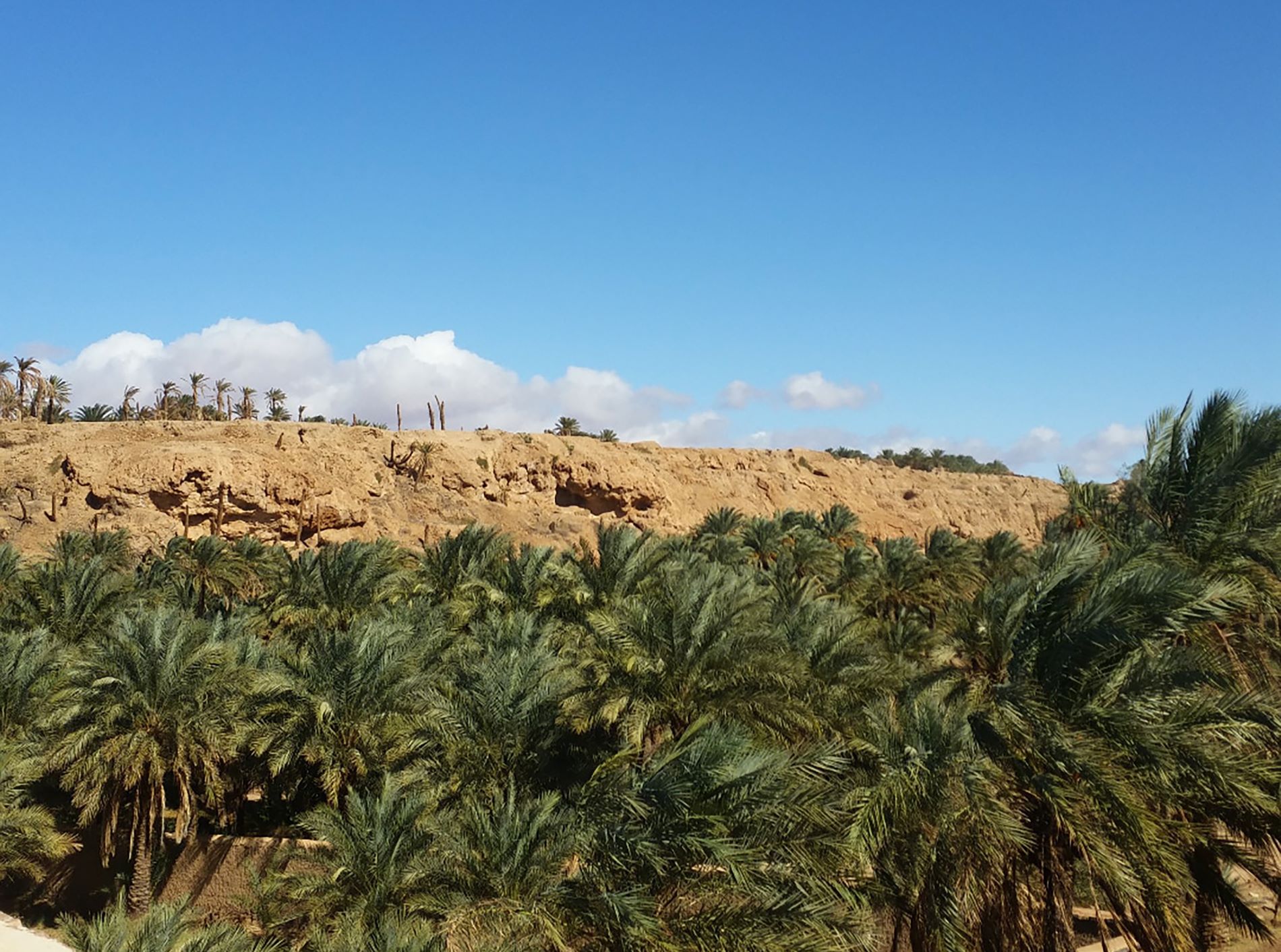

Downloads
DOI:
https://doi.org/10.58981/bluepapers.2024.2.14Published
Issue
Section
License
Copyright (c) 2024 Ouafa Messous

This work is licensed under a Creative Commons Attribution 4.0 International License.
How to Cite
Keywords:
resilient water management, oasis irrigation systems, water scarcity, water governanceAbstract
In the face of water scarcity and climate change, the Figuig Oasis exemplifies resilience through the integration of culture, heritage and sustainable development. This arid region has preserved ancient water management practices that have sustained life for millennia, offering a model for achieving the United Nations’ Sustainable Development Goals (SDGs). Figuig’s significance lies in the potential to harmonize traditional and modern water governance systems, optimizing its hydraulic organization as a living cultural heritage to ensure the sustainability of ecosystems in desert environments amid growing water scarcity.
References
Amrani, Souad. 2020. “La Transition de la gouvernance de l’eau à Figuig.” In Gestion Durable des Ressources en Afrique du Nord, edited by Hicham El Khattabi, 200–20. Tunis: African Studies Publishing.
El-Fassi, Mohamed. 2015. Figuig: Oasis résiliente aux confins du désert. Casablanca: Éditions du Maghreb.
Food and Agriculture Organization of the United Nations (FAO). 2019. Gestion de l’eau en zones arides: Étude de cas de Figuig. Rome: FAO.
Harrouchi, Nabil. 2010. Gestion de l’eau et défis environnementaux au Maroc. Rabat: Université Mohammed V Press.
Jarimi, Hasili, Richard Powell and Saffa Riffat. 2020. “Examen des méthodes durables de collecte des eaux atmosphériques.” Revue internationale des technologies à faible émission de carbone 15, no. 2: 253–76. https://doi.org/10.1093/ijlct/ctz072.
Lahlou, Youssef. 2017. “Les pratiques traditionnelles de l’irrigation à Figuig.” Master’s thesis, Université de Casablanca.
Ministère de l’Agriculture et de la Pêche Maritime. 2020. Rapport sur la gestion de l’eau dans les oasis du Maroc. Rabat: Ministère de l’Agriculture.
Smith, John. 2015. “Water Management in Moroccan Oases: The Case of Figuig.” Journal of Desert Studies 15, no. 3: 245–60.
Vallat, Jean-Pierre. 2014. Le patrimoine Marocain: Figuig, une oasis au coeur des cultures. Paris: L’Harmattan.
Yang, Kaiije, Tingtin Pan, Nadia Ferhat, Alejandra I. Felix, Rebekah E. Waller, Pei-Ying Hong, Johannes S. Vrouwenvelder, Qiaoqiang Gan and Yu Han. 2024. “A Solar-Driven Atmospheric Water Extractor for Off-Grid Freshwater Generation and Irrigation.” Nature Communications 15, no. 6260. https://doi.org/10.1038/s41467-024-50715-0.


